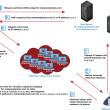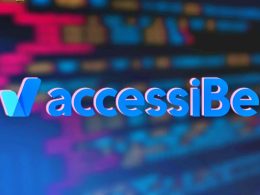A virtual private network, most commonly known as a VPN is a facility that permits you, to run a server by a VPN provider in order to connect to the internet. The entire point of this program is to securely encrypt all the data traveling between your devices to the VPN server.
Most of you might be wondering, when can a VPN come in handy? Well, the list is long, so brace yourself. To begin with, a VPN provides privacy; it does this by hiding all your internet activities from your ISP (internet service provider), it permits you to avoid censorship i.e. by the government, institutes, etc. We all get restraints on the internet because of our location, especially when we are traveling.
This program allows you to geo-spoof your location, which means dodging the server of your location to access services unfairly denied to you. As well as that, if you are ever outside using a public Wi-Fi hotspot, a VPN can protect you against hackers. Finally, you can download P2P in safety.
Though for you to make use of a VPN you must sign up for a VPN service, this can typically cost between $5 – $10 per month. A contract with a VPN service is necessary in order to use VPN. but how does it work? First of all, whenever you connect to your internet, a connection between you and your Internet Service Provider (ISP) is made, which then connects you to websites and all the internet resources you may wish to be directed to.
This simply means all your internet traffic has to go through your ISP’s servers first and can be easily viewed by your ISP. However, if you choose to use a VPN, you connect to a server that is run by the VPN provider can also be known as a VPN server. through this encrypted connection, all the data traveling between your computer and the VPN server now can only be seen by you. They say with every action comes a consequence, and so is the case with VPNs. as a result of this, your ISP is unaware of all your activities on the internet because it’s encrypted. The ISP can just see that you are connected to a VPN server. You are therefore shifting trust away from your ISP.
Moving on to the interesting part. There are Free VPN services that are also available, however, these are limited in one way or another, or there are security issues with many as they cannot be trusted. free VPNs are capable of selling your data, hence you have to understand what you are getting yourself into. Nevertheless, some trustworthy free VPN services also exist; one of the most commonly used is CyberGhost. The free offering although limited, but still is enough for several users. This VPN is transparently funded.
What should we look for when deciding upon a VPN? Although almost all the VPN services cover the main basis to some extent, however, you can’t get everything in one, hence the most suitable choice has to be made. Things you should look for include:
Ø The price of it, whether it’s worth spending your money on or if there are better options available in your price range.
Ø If the speed is fast enough as there is internet speed loss due to extra distances traveled and the processing loads of encryption.
Ø Most importantly, privacy if the VPN provider promises to protect your data. You’ll have to make sure your data isn’t being misused.









